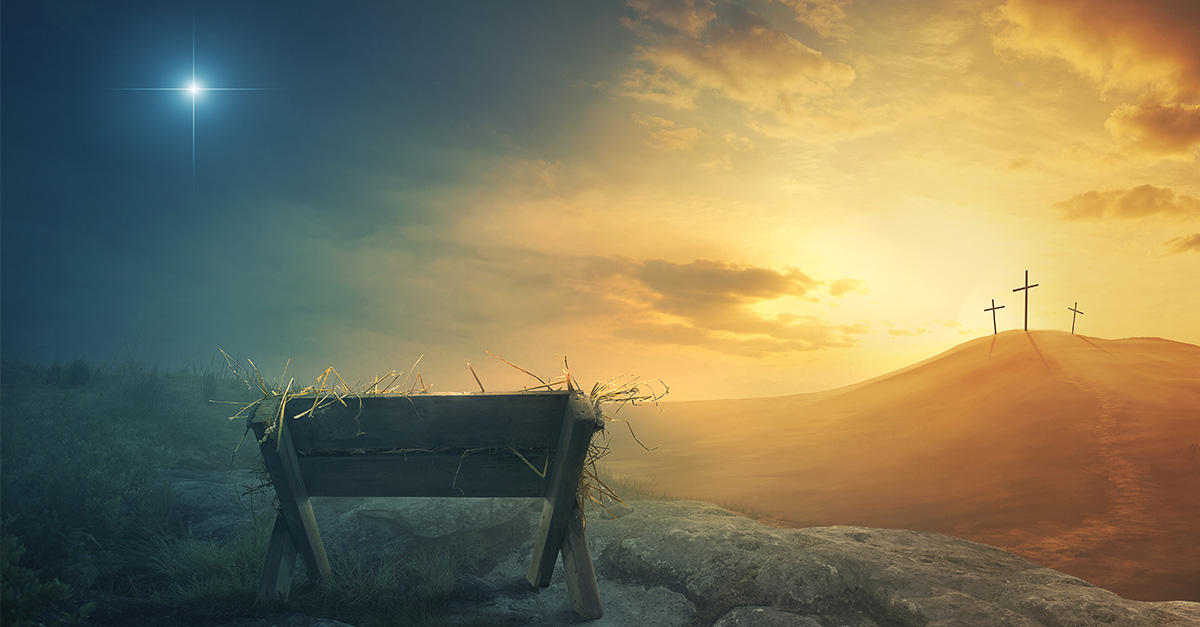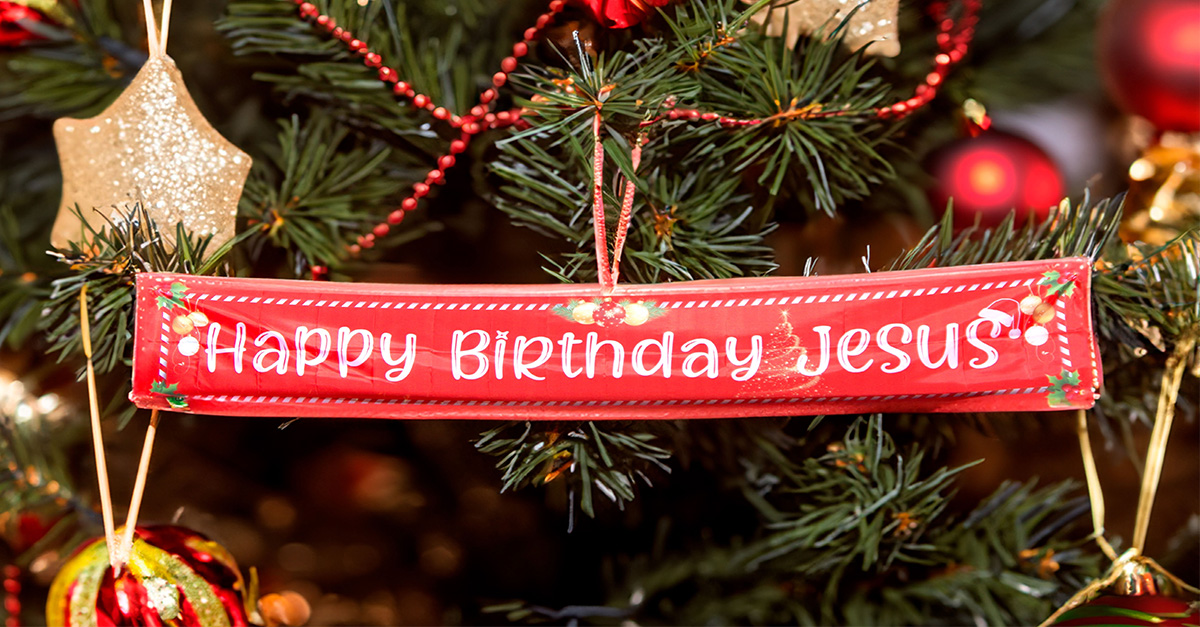


Get a free copy of Parental Rights & Education when you subscribe to our newsletter!

Will we confine Christ to a seasonal celebration, or will we daily live in submission to His kingship? True freedom, peace, and prosperity come only when we acknowledge His authority over every area — and every moment — of life.
As Christmas approaches, homes across America are illuminated with the glow of lights, nativity scenes, and evergreen trees, each a reminder of life and hope. For Christians, this is a time to celebrate the birth of Jesus Christ, the incarnate Son of God.
“For by him all things were created, in heaven and on earth, visible and invisible, whether thrones or dominions or rulers or authorities—all things were created through him and for him. And he is before all things, and in him all things hold together. And he is the head of the body, the church. He is the beginning, the firstborn from the dead, that in everything he might be preeminent. For in him all the fullness of God was pleased to dwell, and through him to reconcile to himself all things, whether on earth or in heaven, making peace by the blood of his cross.”
–Colossians 1:16–20, ESV
This passage is a profound reminder: Jesus Christ is not only the reason for the season but the reason for every season. As we celebrate His birth, we must also reflect on what His incarnation means for our daily lives, our nation, and our world. His life, death, and resurrection demand that we recognize His preeminence in every sphere of existence.
Christmas is the celebration of God’s greatest gift — His loving act to enter human history to reconcile sinners to Himself. As John 1:14 proclaims, “the Word became flesh and dwelt among us.” This profound act of love marked the beginning of the world’s redemption. But the story does not end in the manger.
Without the cross, the resurrection, and the ascension, Christmas is incomplete. Jesus came not simply to be born but to accomplish salvation. He is the fulfillment of Old Testament prophecies, the promised Messiah, and the eternal King who reigns with justice and peace.
What would the world look like without the transformative influence of Christ? History provides sobering examples. Societies that rejected God’s sovereignty descended into moral chaos, political corruption, and societal decay. The Roman Empire, despite its power and grandeur, was transformed not by armies but by the Gospel. Early Christians, armed only with their faith, reshaped laws, values, and culture, proving that no civilization prospers apart from God’s truth.
In today’s America, the marginalization of Christianity has led to rising moral confusion and a loss of identity. Secularism seeks to erase Christ from Christmas, replacing “Merry Christmas” with “Happy Holidays” and reducing this sacred celebration to consumerism. But when Christ is removed, freedom falters.
Alexis de Tocqueville, in Democracy in America, observed, “Despotism may govern without faith, but liberty cannot. Religion is more needed in democratic societies than in any other.”
America’s founding reflects this principle. The Declaration of Independence boldly proclaims that our Creator endows our unalienable rights. Our Constitution, steeped in Christian principles, provided a moral framework for the sanctity of life, religious liberty, and human flourishing. As John Adams noted, “Our Constitution was made only for a moral and religious people. It is wholly inadequate to the government of any other.”
However, turning away from God invites decline. Proverbs 14:34 warns, “Righteousness exalts a nation, but sin is a reproach to any people.” Broken families, rising violence, and moral confusion are the bitter fruits of rejecting God’s authority. Only by returning to biblical truth can we hope to restore what has been lost.
Christmas offers a unique opportunity to reclaim what the culture seeks to strip away. As families gather, let us use this season to teach our children the truth about Christ’s birth, life, and mission. Consider incorporating Scripture readings, prayer, and acts of service into your holiday traditions to reflect the true meaning of Christmas.
As believers, we must also seize this moment to proclaim the Gospel boldly. The world needs the light of Christ, and as Matthew 28:19–20 reminds us, we are commanded to go and make disciples. The culture’s hostility toward truth is no excuse for silence. Instead, it is a call to action.
The Apostle Paul urges us in 1 Corinthians 15:58, “Therefore, my beloved brothers, be steadfast, immovable, always abounding in the work of the Lord, knowing that in the Lord your labor is not in vain.”
This Christmas, resolve to stand firm in your faith, unashamed of the Gospel, and committed to influencing your community for Christ.
As we gather this Christmas, let us remember the full narrative of Christ’s work. He is the Alpha and Omega, the Creator and Sustainer of all things. His birth brought joy to the world, but His life, death, and resurrection brought salvation. And one day, He will return to establish His eternal Kingdom.
The question for us today is this: Will we confine Christ to a seasonal celebration, or will we daily live in submission to His kingship? True freedom, peace, and prosperity come only when we acknowledge His authority over every area of life. As Psalm 33:12 declares, “Blessed is the nation whose God is the Lord.”
Let us crown Him in our hearts, homes, and nation, giving Him the glory He alone deserves. For unto us, a child is born, unto us a Son is given, and His name is above every name. This Christmas — and every day — may we proclaim:
“Crown Him with many crowns, the Lamb upon His throne.
Hark! how the heavenly anthem drowns all music but its own.”
Christ is not only the reason for Christmas, He is the reason for everything. Let this truth guide our worship, our witness, and our walk throughout the year.
If you like this article and other content that helps you apply a biblical worldview to today’s politics and culture, consider making a donation here.

Notifications